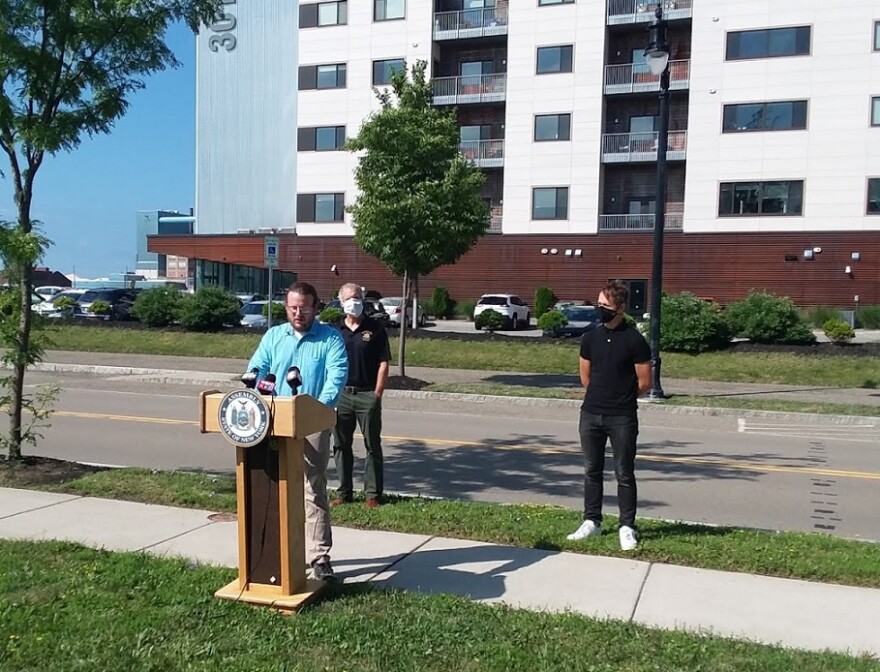Legislation is on its way to the Governor’s office for signature to reform a construction tax credit some say has been abused to the tune of millions of taxpayer dollars.
Under Real Property Tax Law 485-a, the residential-commercial urban exemption program, developers who repurpose old or abandoned buildings for mixed-use can enjoy 12 years of property tax exemptions.
State Assemblyman Sean Ryan said some developers used loopholes to help them skirt required percentages of commercial and residential space. He cited examples such as a property at 301 Ohio Street in Buffalo, which was not repurposed, but rather built from the ground up.
"The program was designed to transform vacant properties. But here on Ohio Street, it's a brand new building that received a tax break," Ryan said. "This wasn't a transformation of an underutilized commercial building."
In another example, in Canalside, the Assemblyman says another developer claimed to have residential space within their new building, but that space was limited to just one small apartment.
Robert Galbraith, a senior research analyst at the Public Accountability Initiative., has been studying other abuses of 485-a in Buffalo for about three years.
"In 2018, we were unable to find a single apartment in a 485-a project that rented for less than $1,175 per month. That's for a two-bedroom apartment," he said. "And that's more than 45 percent higher than the fair market rent in Buffalo. Because the taxes exempted through this program end up being paid by the rest of taxpayers, this program has had the effect of forcing poor people of Buffalo to subsize their own displacement."
Ryan said Buffalo taxpayers were saddled with $6.3 million in taxes that should have been paid by developers.
Among the reforms are requirements to take back incentives in cases when compliance is not met.
“Everybody receiving this tax break must recertify, under penalty of law, each and every year that they’re using the building as the purpose they set out in the original application,” Ryan said.
Reforms passed by state lawmakers (A-8091/S5254) include a reduction of commercial spaces that would qualify for the credit, exclude plots that were empty prior to construction, and revoke tax breaks if a developer is found to violate the conditions of 485-a.





